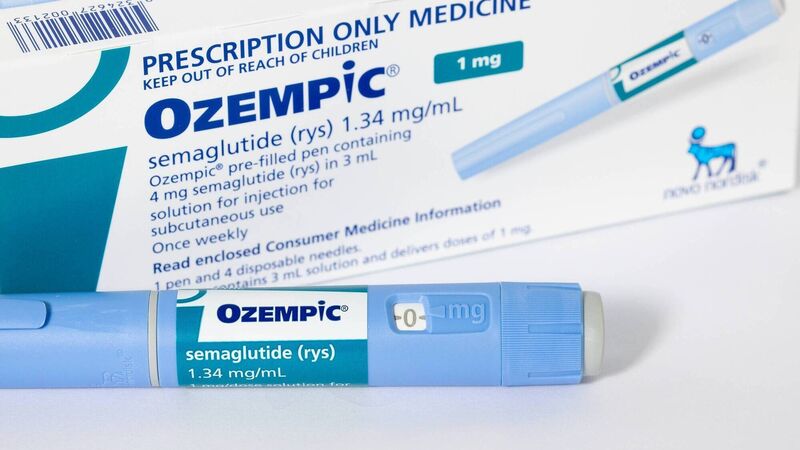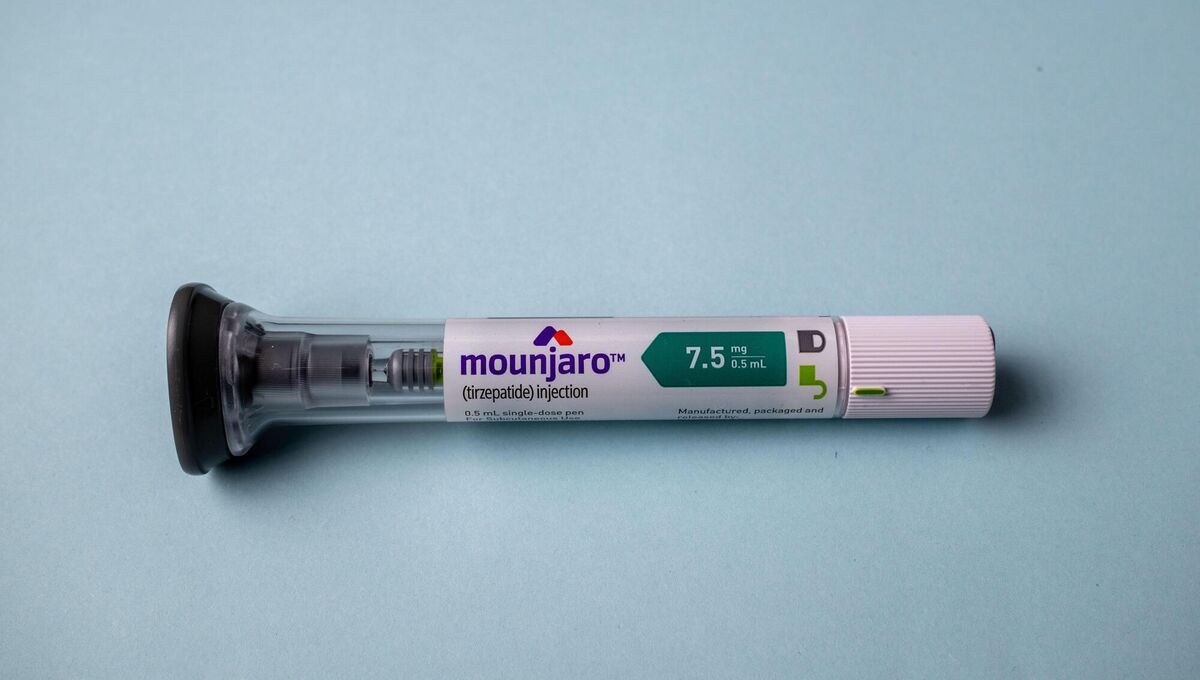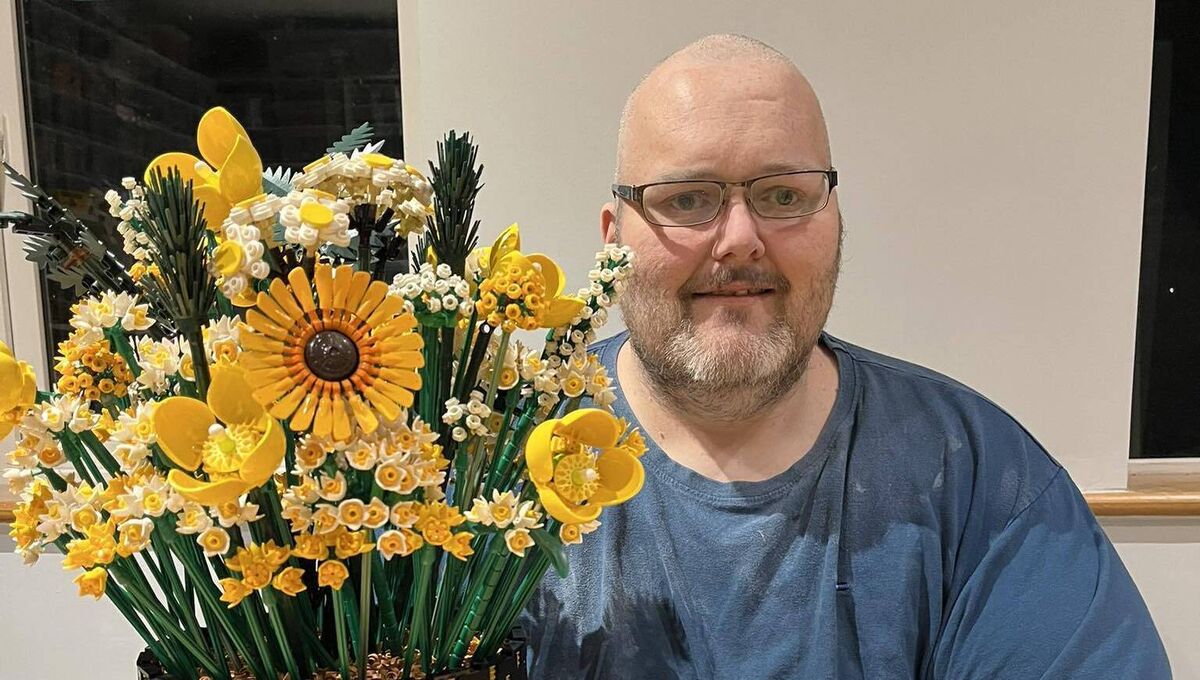Surge in bariatric surgery as Ozempic side effects leave patients seeking alternatives

The use of Ozempic, which was initially intended solely to treat diabetes, soared after numerous celebrities praised it for their dramatic weight loss. Picture: Steve Christo/Corbis via Getty
At one point, it appeared that Ozempic might just spell the end for the need for bariatric surgery across the world.
However, the popularity of what is being hailed by many as a weight loss wonder drug has actually led to an increase in patient numbers for Cork-based obesity surgeon Colm O’Boyle.
Based at the Bons Secours Hospital, Mr O'Boyle said he is seeing an increase in patients who were unable to continue with the medication due to intolerable side effects — including abdominal cramps, vomiting, and gastrointestinal upset.
Mr O’Boyle expects the demand for surgery to increase as stronger weight loss drugs are licensed.
The use of Ozempic, which was initially intended solely to treat diabetes, soared after numerous celebrities praised it for their dramatic weight loss.
However, Mr O’Boyle said the glamorisation of the drug may prove counterproductive in the long term.

“I’ll be doing far more surgery from here on in and there are a few reasons for this,” Mr O’Boyle told the .
“First of all, the medications aren’t nearly as good as the media would have you believe. About 30% of the people who take it suffer side effects.
"As a result, you have a very large number of patients going on the medication. For around 60%, they don’t work.
"The person taking it gets upset and feels they really need to lose weight and go for surgery.
"All the patients I’m seeing nowadays have either tried the medication and failed, tried the medication and got side effects, or tried the medication without losing enough weight.
"The fourth group tried the medication and lost the weight but subsequently put it back on — despite remaining on the drug.”
He explains why Ozempic often just provides a short-term solution.
“Nearly everyone gets nausea and the nausea stops the eating. Some people just get too much nausea to deal with.
Mr O’Boyle’s comments come as the more powerful weight loss drug, Mounjaro (tirzepatude), was licensed for use in Ireland from February 17. The drug, which also treats diabetes, is believed to result in weight loss of 20%, compared to 14% in Ozempic users.
“It’s effectively Ozempic by two, so there's going to be a huge number of patients going for that,” Mr O’Boyle said.
“What people need to consider is that the stronger dose is going to have more side effects.
"It’s more likely that patients will develop fairly serious side effects like pancreatitis and renal failure. We don't know what the true incidence of this will be until the drug gets out into the community.
"It's been through various clinical trials where the incidence is fairly low. However, when it gets out in the community, it will probably be a different story.”
He also predicts that many users will build up a tolerance to Mounjaro and other weight loss drugs in years to come.
“I think a very high percentage of them will fail, and a very high percentage will cause side effects, so I will end up doing far more surgery down the line than I'm doing now.

"The drugs will be more effective the lower the BMI [body mass index]. Currently, the drugs are indicated for BMI of 27 to 35.
"Increasingly though, people with a BMI of 35 to 40 will probably get good weight loss with them and reverse their diabetes, high blood pressure, sleep apnea.
"They will be good enough to keep them at a lower weight over a longer period of time, but I think a lot of these drugs will fail down the line. We don't have long-term follow up as they have only been out for a few years.
Mr O'Boyle says surgery will continue to be necessary for higher-risk patients "until a really good drug comes along, but I think that's a long way away".
As the number of people wanting to lose weight increases, he advised people against travelling abroad for surgery — describing it as "not a good idea."
“It’s a lot easier to have surgery in Turkey, but it’s also really important to get the right centre. Even when you do get the right centre, people still get complications that kill them," he said.
"This is a result of not being near the place where they had their original operation.”
Echoing Mr O'Boyle's comments about travelling abroad, Limerick man Gary Kirwan underwent weight loss surgery in Ireland in August 2022. The 44-year-old suffered unavoidable complications which would likely have ended in death had he opted to have the operation abroad.
He said he is keen to use World Obesity Day, March 4, to spread awareness of the struggles facing people with obesity. He said it is important to shed misconceptions among people who view weight loss surgery as a quick fix solution.
“The way some people treat people with obesity is often misguided," he told the
"You really can’t understand what a person is going through unless you have been in their shoes.
"If it really was that simple, then obesity wouldn’t be an issue. Chances are that anybody going for weight loss surgery has already tried everything else.
"I tried everything from WeightWatchers to Unislim and various diets before going down this route.”

Mr Kirwan said he was the most severe case St Vincent’s University Hospital had dealt with at the time.
The father of one was 310kg on the day he presented for surgery to have a gastric band fitted in August, 2022. He had already lost 76kg to get to that point. It was initially believed that surgery had gone well until medical staff noticed a shift in Gary’s vital signs.
“I was the heaviest patient in the country they have ever operated on,” Gary said.
"I was extremely unlucky because of something as simple as an internal bleed. My abdomen had basically filled up with blood. The team realised that something was very wrong and brought me back to theatre.”
“Experiencing a bleed like this is really bad, because it kind of suffocates all your organs and that's what happened. Without the team being so unbelievably on the ball, I would have died.
"They spent 10 hours trying to keep me alive. Any other surgeons in the world would probably have called it a day, but they didn’t. They refused to give up on me.
"I honestly believe that in any other hospital in the world I wouldn’t have made it.”
Gary recalled how difficult the whole experience was for his now 12-year-old son Sam and wife Michelle.
“I was asleep for all the time they suffered. I was on life support for three weeks. When I woke up, I didn’t realise what was going on since I was on strong medication. I was in hospital from August to March.
"I lost the sight in one eye, which basically means I have to be a little more careful going forward but other than that I am lucky. I definitely had the easy pass.”
As the medication haze faded, Gary realised his battle was just beginning.
“As time went on, we realised there were other complications too. I had become so weak that I couldn’t even hold my phone to speak to my son.
"Being on a life support machine can have a huge knock on effect for your long-term physical health. It puts your body through a lot. Most people don’t realise that because they’ve never been in that position. It’s really tough.
"They say it takes a year to fully recover from an anaesthetic, even though you’ll probably feel fine after a week or two. Coming off life support is the equivalent of that, but multiplied by 10.”
Gary has some sage advice for anyone contemplating weight loss surgery.
“You still have to do the work, but the weight loss surgery gives you a fighting chance. I would never judge anybody who tells me they are travelling abroad for weight loss surgery. What I would tell them is to do their research. Had I not been in the right hands during my operation, I would definitely not be here today.”
- To find out more about obesity healthcare visit www2.hse.ie





